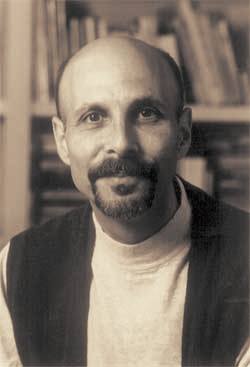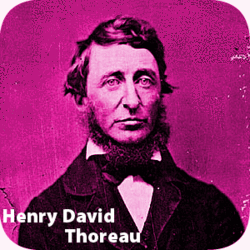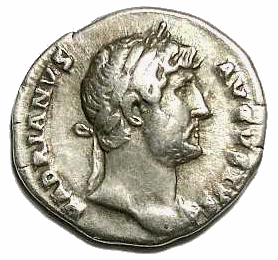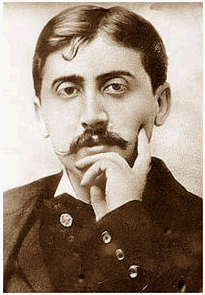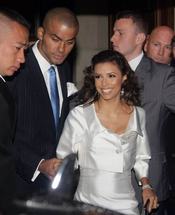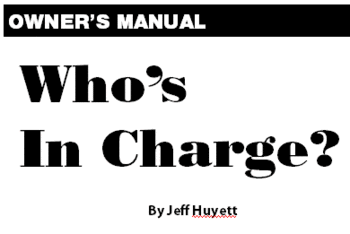 This regular column will explore queer health in America today. In the nursing tradition, I view health in the dynamic interplay of mind, body, and spirit within a culture, an environment, and a time. I hope to foster in the reader a sense of understanding and empowerment to move closer to health.
This regular column will explore queer health in America today. In the nursing tradition, I view health in the dynamic interplay of mind, body, and spirit within a culture, an environment, and a time. I hope to foster in the reader a sense of understanding and empowerment to move closer to health.
I came out in college, studying to be a nurse when HIV emerged in the early ‘80s. This confluence of events colored my professional and personal life. I’ll share some of my experiences of nursing queer people shaking off dis-ease by changing themselves and the world around them during, through and after that era.
Health cannot be achieved alone. It is not a commodity that someone can provide you. I hope to challenge the readers’ assumptions and encourage health action in a culture, an environment, and a time.
Like most Americans, I have found myself standing, thirsty and dazed, in front of a convenience store beverage cooler spilling over with choices. There is just so much from which to choose. The confusion starts when I begin to compare price, content, or expected result. Mass marketing impacts my selections, too. I sometimes get exasperated by all the choices, give up and buy water. Health care choices can be just as overwhelming. Flashy media images promote people, services, and “clinically proven products” as readily as grocery store selections. This writing will explore the concepts of health and the current paradigm in which it exists.
Health, the concept, is complex to define. It is experienced individually, so it eludes common description. For discussion’s sake, let’s say that health is “a state of optimal well being of the mind, body and spirit.” Factors that impact health are personal, social, genetic, economic, cultural, and environmental. These systems interact and impact on each other.
Health is multi-factorial requiring on-going upkeep, evaluation, and change in the individual, its family, culture, social structure, and environment. When neglected, health will diminish. When optimized, health will flourish. Health, then, is a practice we follow through life. It’s not static. Upkeep on a healthy path requires consciousness of the individual as well as society. Conceived in this broad sense, health considerations must permeate the individual, its people and ways of being in order to be achieved. Health of a species and its environments is then a dynamic interplay toward balance.
In the American medical model, health is the absence of illness. If we don’t get sick we must be okay. Health is something obtained like a product. If we get ill, we go to the doctor. We’re told what’s wrong and what to do. This interaction, pills or treatment costs money. Americans are set up with the paradox that if one is insured, one has health. When nothing is wrong, you don’t get assessed. Consequently, when you have no insurance, you will engage the system only when you absolutely must. In the midst of a health crisis your overall health will not likely be considered. Wide variations exist in access to health care. This model of disease treatment as health has been ingrained in the American psyche.
Entering the fee-for-service health care system is when the dazed confusion begins. There are lists of plans and lists of providers. How do you choose? Does advertising pressure affect your health choices like it does your beverage selections? When we land a job providing health insurance, a plethora of forms and insurance booklets will be presented. We’ll make decisions with little time to overview the insurance plans. A sense of “Phew, I’m employed. I’m covered” may occur. But what are we covered for? Participating providers are organized based on disease states treated like cardiology, dermatology, and gynecology. There’s something called “internal medicine.” Whatever that means! Who do we — healthy people — consult if we want to stay well? You guess who and what is right for you. Sometimes you hit it. You are provided attention pretty much only if you’re sick, right? Gay men have to argue with insurances to get specific preventative coverage like hepatitis vaccinations and human papillomavirus screening. Newborns and students get hepatitis vaccinations paid for, but gay men, who get lots of hepatitis, cannot. Millions of Americans are uninsured. Striations of health care beliefs and patterns run through our culture when access is so varied.
I grew up in the 60’s and 70’s watching a minimum of two-to-three hours of television a day, like most everyone else. Food and beverage advertising came streaming at me. Most of the food was boxed, canned or frozen, usually sugary or fatty, and easy to prepare. Shows on health were tucked away in obscure hours. Cigarettes and alcohol were advertised. There weren’t many brown-skinned folks in television.
In school PE was about sports not fitness. Health education was nine weeks of one-hour lessons with nothing about sex, emotional wellness, or drugs. My mother had to sign permission to take the classes on Evolution and Reproduction in Advanced Biology. If one joined 4H or the Boy Scouts you’d get great health and safety teaching. If you are gay you cannot join the Scouts. I had a basic understanding of my body but sought out that information. I got a usual middle class education and was armed to leave my mother’s home with a fairly good idea of how to take care of myself. My male college peers, I observed, were not so prepared. They had limited ability to prepare food for themselves, manage their garments, or tend to themselves when ill. In my interactions with patients I find that most people have a pretty poor understanding of how their bodies work, and have a huge range of notions about ways to take care of themselves. I also experience that Americans have a lot more reserve and shame connected with showing me their bodies. Thus people enter into the current “health care system” with limited basic operating instructions about themselves or the systems of delivery and are probably self conscious and awkward.
The development of the Internet, in the age of AIDS, allowed queer people to get information lacking in our meager health education systems. I find patients coming to me much better informed, but with much more commercially biased information. Once again mass media and marketing have a dizzying effect.
In my female-dominated profession I embrace nursing, its history and culture. Part of that history is domination by modern medicine, a mostly male profession, over the existing health delivery and beliefs systems. The “wise women” in villages, witches, Native American healers, and midwives are some of the fore bearers of the knowledge I use as a nurse practitioner. Much of that oral tradition of healing was lost with the genocide of witches and local healers. Nursing theorists discuss this time as the political beginnings of the medical associations to suppress “the women who keep the people healthy and out of hospitals” and prevent the study of disease. My feminist leanings, as well as my first-hand personal, political, and professional experience of HIV, have made me distrustful of modern medicine, the public health system, and pharmaceutical industry.
The queer health movement shakes up the American health care system in radical ways. When the needs of people living and dying with HIV increased in the 80s, legions of gay men and lesbians set up networks of care and services. Not waiting for the existing health care system to respond, we set up our own systems of support, nutrition, counseling, and financial assistance. Queer clinicians provided health care to the masses, but weren’t reflected in health statistics, research or policy. Our exploration of our own health needs now pressures the medical and public health systems to evaluate and attend to our particular concerns. Queer health consumers have invigorated “alternative” health methods, often older than modern medicine, when Western modalities fail.
Our medically-oriented, disease treatment model of health is not sustainable. We’re witnessing this with inflation of costs, reducing of service and the demise of Medicare. We could say, then, that the existing dominant medical paradigm of health care is utterly flawed. The uninsured and many others must seek out methods for health that the existing structures just don’t provide or support.
Physicians study disease; Nurses, wellness. It is time for the over-arching paradigm to be informed by a philosophy more realistic to the multi-faceted human experience health. Nursing is one philosophy. There are others that view the human as an integrated whole such as Ayurveda, Acupuncture, or naturopathy.
Let us envision a different health model. First, health teaching, not generated by the commercial industry, permeates our culture and schools. Health basics become as important as reading, writing and arithmetic. Health messages would address mind, body, and spirit. All citizens would be fed, dry and comfortable and national policy would reflect this reality. Periodic health assessment by a provider would include your image and knowledge of self, your ability to care for yourself, understanding of growth and development, aging, common afflictions and how to tend to them. The assessment is informed by cultural, spiritual, economic, and social knowledge. This patient-centered evaluation method assesses your level of health, the risks faced, and the ways to improve and prevent based on your historical, cultural, and genetic package. The assessment happens periodically when you’re well and able to comfortably interact. If you get sick, you engage this provider, informed of your being, to get advice and recommendations based on a much deeper understanding of you, not just the disease. You develop a relationship with the provider and trust them. Your health partner will not know everything, can admit that, and help you find answers when they don’t have them.
This ideal health care system isn’t close to reality today. Continue to learn about yourself, your body and each other through information and education. Be an on-going student of the human race. Take time to be conscious of yourself, those around you and your environment. Adapt and change based on the needs of you and your community. Find a healer with whom you feel comfortable. Interview and ask questions about provider and philosophy. Get referrals from friends. You want to feel welcomed, open, and prepared to share and receive. If there is no spark of connection find another. Not all healers assess mind/body/spirit. Look for someone who does. Ask questions. Manage personal risk. Be open to incorporating various modalities and professionals. Rigid belief or practice is probably as detrimental as no practice. Mostly, be sustainable. Make health a routine in your daily life through simple, ritualistic care and observation of yourself, others, and the environment around you.
I have been accused of being utopian more than once. To sustain, health requires a revolution of self and the world in which we live.
Humans, as organic beings, are capable of this change.
The story of evolution is proof…if you believe in that sort of thing.
This is just an excerpt from this issue of White Crane. We are a reader-supported journal and need you to subscribe to keep this conversation going. So to read more from this wonderful issue SUBSCRIBE to White Crane. Thanks!
Owner’s Manual is a new, regular health feature of White Crane. Jeff Huyett is a nurse practitioner living in NYC. His clinical work has primarily been in queer health with a focus on HIV, rectal and transgender care. He is the Radical Faerie Daisy Shaver and is involved with the development of Faerie Camp Destiny Radical Sanctuary in Vermont and can be reached at JeffANP@aol.com

